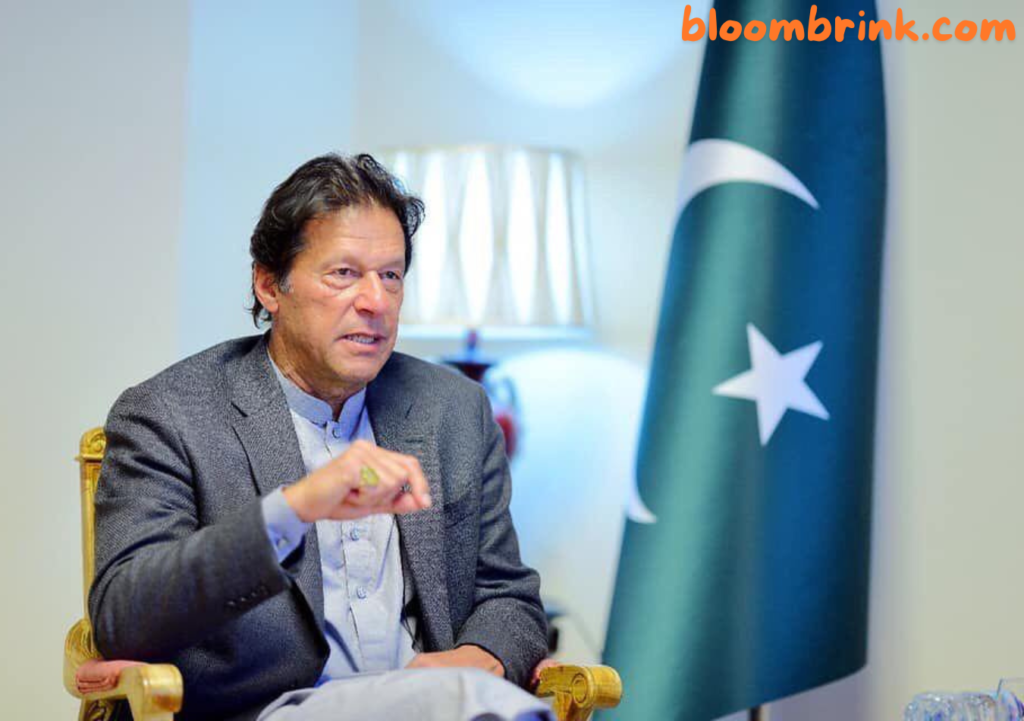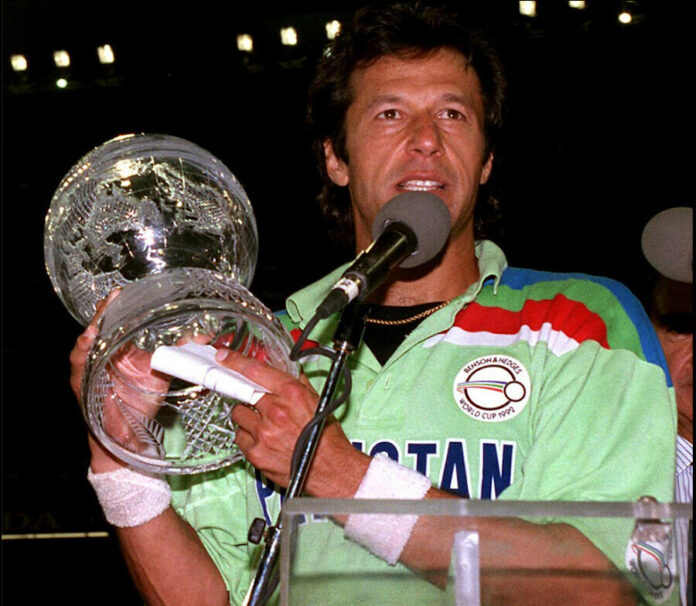Imran Khan’s name emerges an exceptional shine that coordinates two distinctly disparate domains—Pakistan’s turbulent politics and cricket’s chronicles. Not only is his ascent from the cricketing greens to the esteemed corridors of political power a personal achievement, but Imran Khan also serves as a testament to the enduring influence of sportsmanship on national identity and the complex nature of leadership.

The Cricketing Inspiration
Early in the 1970s, Imran Khan, born in Lahore, Pakistan, impacted the international cricket scene on November 25, 1952. He rapidly rose to prominence in Pakistani cricket with an aggressive batting approach and a natural gift for fast bowling. Khan made significant and wide-ranging contributions to the game throughout his two-decade career. Under his leadership, the Pakistani national team won its historic first-ever World Cup success in 1992. This achievement continues to inspire cricket lovers worldwide.

Khan’s leadership and charming personality complemented his cricketing skills. Under his leadership, the Pakistan cricket team experienced a significant transformation, becoming an impressive entity recognised for its determination and dedication. His remarkable career statistics in Test cricket—3,807 runs and 362 wickets—illustrate his all-around capability. His ability to innovate and motivate his team and outstanding numbers set him apart.

Success to Politics
Following his retirement from cricket in 1992, Imran Khan initiated a fresh chapter in his political career. With a vision for a reformed Pakistan, he transformed from an athletics icon to a political leader in 1996 when he established the Pakistan Tehreek-e-Insaf (PTI). His political development was characterized by the identical resolve and keen assessment that characterised his cricketing profession.
His vigorous campaign against corruption and his determination for Pakistan, including establishing a Cancer Hospital in memory of his mother, enhanced his image as a leader.

Khan’s political discourse centred around re-establishing education, healthcare, and anti-corruption measures, which struck an emotional cord with a substantial portion of the Pakistani population exhausted from the status quo. His diligently pursued opposition to corruption and humanitarian undertakings, such as establishing a cancer hospital bearing his mother’s name, enhanced his reputation as a leader dedicated to improving society.

Achievement of a Political Milestone
The 2018 general elections represented a significant turning point in Khan’s political career. The PTI’s victory moved him to Pakistan’s prime minister position. His efforts to improve governance, lessen poverty, and protect Pakistan’s sovereignty have been notable during his time as prime minister in the face of international pressure.

Despite the difficulties presented by political opposition and economic instability, Khan’s leadership style stands out for its emphasis on long-term national interests and resiliency. His ambition for distinction in cricket is apparent in his vision of a “Naya Pakistan” (New Pakistan), which places significant emphasis on excellence, integrity, and accountability.

The Beyond and Legacy
The evolution of Imran Khan from a cricketing legend to a prominent political figure is both an inspiring personal accomplishment and a narrative of significance. It highlights the capacity of athletics to promote attributes that extend beyond the realm of competition, exerting an impact on more extensive social and political domains. Therefore, his legacy is dual: as a cricketer, he elevated the national spirit and brought honour to Pakistan; as a politician, he attempts to achieve this spirit through reforms and progress.

Within Pakistani conversation, Khan continues to be a highly influential figure, demonstrating the harmonious integration of diplomacy and governance. The individual’s movement from the cricket stadium to the corridors of authority remains motivational, serving as a reminder that the same qualities that characterise success off the field—leadership, determination, and a dedication to excellence—are equally applicable when fighting for the progress and prosperity of an entire nation.





